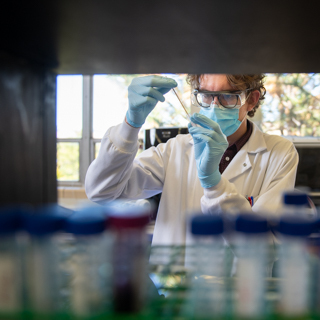News Articles
Dr. Nicholas R. Natale is the 2022 recipient of the Drexel University Chemistry Department’s Distinguished Alumnus Award.
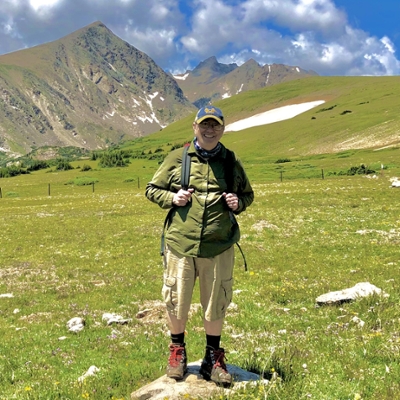
Nicholas R. Natale, PhD, a professor of Medicinal Chemistry at the University of Montana, received his Bachelor of Science in Chemistry (1976) and his PhD in Organic Chemistry (1979) at Drexel University. Dr. Natale, who will present the seminar “Isoxazoles in Medicinal Chemistry,” is the 2022 recipient of the Chemistry Department’s Distinguished Alumnus Award.
The Natale lab is interested in the role of chirality and conformational dynamics in bioactive small molecules. Projects are directed towards medicinal chemistry applications in the realm of multi-drug resistance, antitumor agents and neurotransmitter analogs, all have involved the principles of hypothesis-driven structure-based drug design.
Andrij Holian appointed to National Advisory Environmental Health Sciences Council

MISSOULA – Dr. Andrij Holian, a University of Montana professor of toxicology in the Department Biomedical and Pharmaceutical Sciences and director of the Center for Environmental Health Sciences in the Skaggs School of Pharmacy, has been invited to serve on an influential National Advisory Environmental Health Sciences Council. NAEHSC advises high-level federal government leaders such as the secretary of the U.S. Department of Health and Human Services, the director of the National Institutes of Health and the director of the National Institute of Environmental Health Sciences on research, training and other matters significant to meet national research goals. To view entire article click here.
UM Unveils new L.S. Skaggs Institute for Health Innovation
 The University of Montana announces the creation of the new L.S. Skaggs Institute for Health Innovation (SIHI) in the College of Health. The Institute will serve Montana as a statewide hub for health education, research and outreach to improve access to health care for all Montanans, particularly those living in underserved communities. To view entire article click here.
The University of Montana announces the creation of the new L.S. Skaggs Institute for Health Innovation (SIHI) in the College of Health. The Institute will serve Montana as a statewide hub for health education, research and outreach to improve access to health care for all Montanans, particularly those living in underserved communities. To view entire article click here.
Precision Medicine | SciShow Talk Show with Dr. Erica Woodahl
October 2018 - Dr. Erica Woodahl tells us how individual genetic screenings could help doctors prescribe better medications and Jessi from Animal Wonders brings in two fantastic rodents: Huckleberry the beaver and Chili Pepper the Patagonian cavy. Watch the video here.
UM Earns $10M Contract to Develop Universal Flu Vaccine
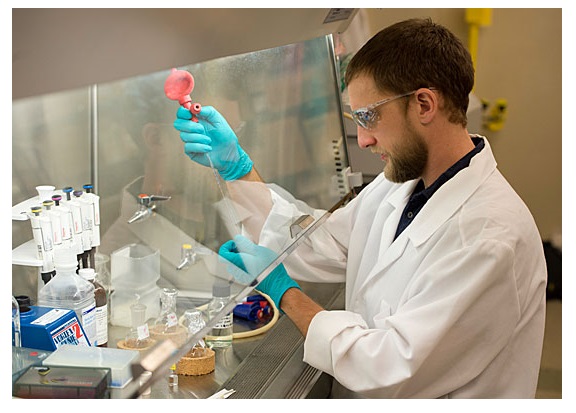 October 2018 - The National Institutes of Health have awarded a $10 million contract to the University of Montana to develop a new universal flu vaccine. The five-year award went to Dr. Jay Evans, director of UM’s Center for Translational Medicine and a research professor in the Division of Biological Sciences. The contract is titled “Development of TRAC-478: A Synthetic Dual TLR Adjuvant Combination System.” View full article here.
October 2018 - The National Institutes of Health have awarded a $10 million contract to the University of Montana to develop a new universal flu vaccine. The five-year award went to Dr. Jay Evans, director of UM’s Center for Translational Medicine and a research professor in the Division of Biological Sciences. The contract is titled “Development of TRAC-478: A Synthetic Dual TLR Adjuvant Combination System.” View full article here.
UM Researcher: Big Data, Networks Identify Cell Signaling Pathways in Lung Cancer
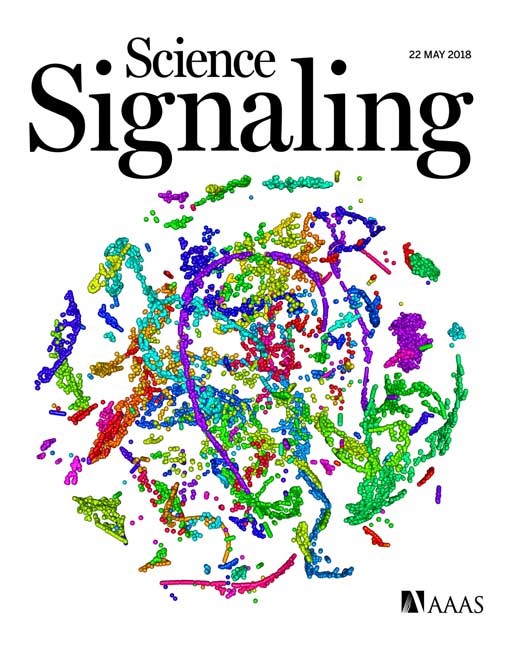 May 2018 - A team of scientists led by University of Montana cell biologist Mark Grimes has identified networks inside lung cancer cells that will help understand this cancer and fight it with drug treatments.
May 2018 - A team of scientists led by University of Montana cell biologist Mark Grimes has identified networks inside lung cancer cells that will help understand this cancer and fight it with drug treatments.
The paper, published as the cover article of the May 22 issue of Science Signaling, sheds light on how a new class of drugs called HSP90 inhibitors – which are currently in clinical trials – works to fight cancer. It is the first large-scale study to analyze three different kinds of protein modifications simultaneously while also employing new methods that involve mathematical and computational approaches and networks to analyze these data. View full article here.
UM Researcher: Evidence Mounts for Alzheimer’s, Suicide Risks Among Children, Young Adults in Polluted Cities
April 2018 - A University of Montana researcher and her collaborators have published a new study that reveals increased risks for Alzheimer’s and suicide among children and young adults living in polluted megacities.
Dr. Lilian Calderón-Garcidueñas said her group studied 203 autopsies of Mexico City residents ranging in age from 11 months to 40 years. Metropolitan Mexico City is home to 24 million people exposed daily to concentrations of fine particulate matter and ozone above U.S. Environmental Protection Agency standards. The researchers tracked two abnormal proteins that indicate development of Alzheimer’s, and they detected the early stages of the disease in babies less than a year old. View full article here.
Grant to Study Precision Medicine with American Indian, Alaska Native People
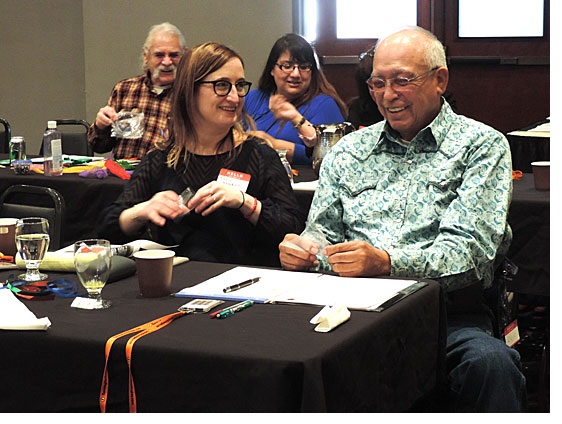 March 2018 - The University of Montana and its research partners have earned a $2.1 million grant from the National Institutes of Health to study precision medicine targeted to help Native peoples.
March 2018 - The University of Montana and its research partners have earned a $2.1 million grant from the National Institutes of Health to study precision medicine targeted to help Native peoples.
The grant will fund the research of Dr. Erica Woodahl, an associate professor in UM’s Department of Biomedical and Pharmaceutical Sciences in the Skaggs School of Pharmacy. Woodahl has worked on precision medicine with tribal communities in Montana for more than a decade. View full article here.
Life From the Pit: How Montana’s Toxic Lake May Be The Key To A New Antibiotic
January 2018 - The Berkeley Pit, part of the largest Superfund site in North America, is filled with a soupy, brownish liquid comprised of high concentrations of iron, copper and other metal salts. The pit’s walls are rich in iron pyrite — or fool’s gold — which produces an unceasing acidic broth. Because of the lake’s low pH of 2.5, no one had thought before to look for life within such a toxic environment.
But a colleague collecting samples found something growing on a stick submerged in the pit’s “uninhabitable” waters. He brought it to the Stierles’ lab for identification, and the blue-green blob turned out to be an alga. It was the summer of 1995.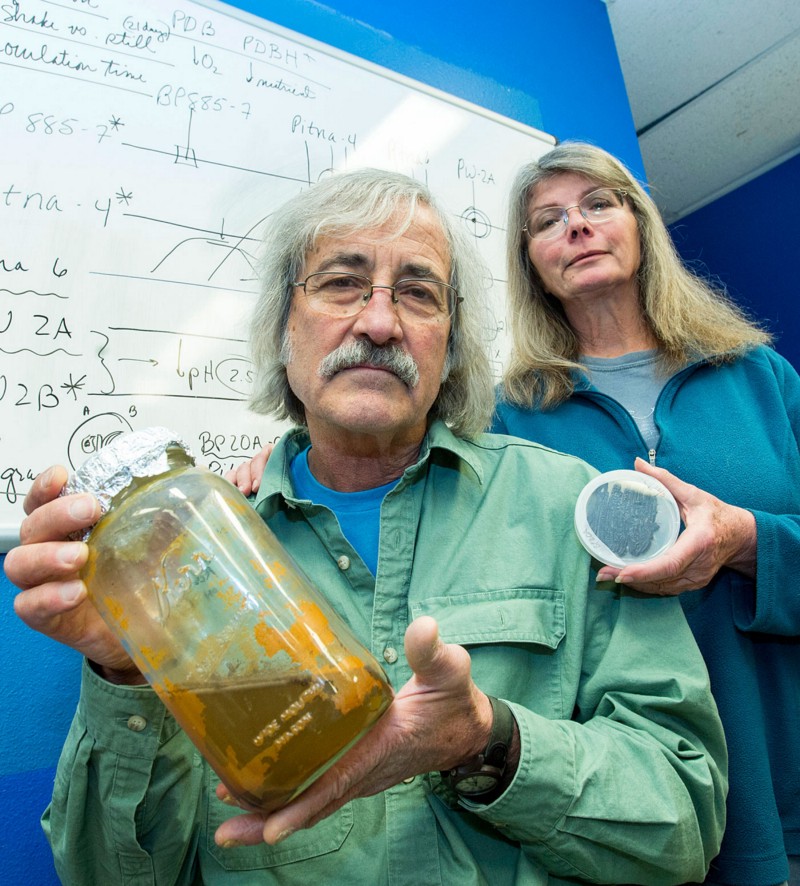
[...]The Stierles have isolated 12 antibiotic compounds from the two co-cultured Berkeley Pit fungi. Most antibiotics find something unique to target in a pathogenic bacterium, such as an enzyme, to disrupt protein synthesis or another process.
“To our surprise, it didn’t touch protein synthesis. It did not bind to the ribosome. It is nothing like any known macrolide antibiotic,” Andrea says.
For now, the Stierles are trying to learn how exactly the compound works as an antibiotic. First they must test if the compound is toxic to mammalian cells and whether it can be metabolized and made into an orally available drug. Then, they must find a pharmaceutical company interested in investing in the drug. View full article here.
See also: "Extremeophiles: The Berkeley Pit's Silver Lining" (June 2016) | "The Goose Killing Lake" (Dec 2016) | "Fungal Duo" (April 2017) | "Berkeley Pit", "Fungi Found in Toxic Lake Produce New Antibiotic" , "Berkeley Pit's Snow Geese", "Two Fungal Species Cooperate to Produce Antibiotic" (May 2017)
UM Professor Named 2017 American Chemical Society Fellow
April 2017 - The American Chemical Society has named University of Montana Professor Nicholas Natale to the 2017 class of ACS Fellows, which honors scientists who demonstrate outstanding accomplishments in chemistry and make important contributions to ACS, the world’s largest scientific society.
The selection of ACS Fellows is based on excellence and leadership in the science, profession, education and/or management of chemistry, as well as volunteer service to the ACS community. Natale, a professor of medicinal chemistry in UM’s Department of Biomedical and Pharmaceutical Sciences, is the only researcher in the state included in this year’s class. View full article here.
UM Pharmacy Program Ranks No. 2 Nationally for Salary-Debt Ratio
April 2017 - The University of Montana pharmacy school ranks No. 2 nationally for “providing  students the best bang for their buck,” according to a prominent lender and student loan refinancing company.
students the best bang for their buck,” according to a prominent lender and student loan refinancing company.
The SoFi company studied which pharmacy school graduates have the highest average salaries relative to their student debt. When this salary-debt ratio was calculated, the UM Skaggs School of Pharmacy landed at No. 2 on a list titled “Most Lucrative Pharmacy Programs.” View full article here.
$1.25M Gift Endows Scholarship for Native American Pharmacy Students at UM
February 2017 - In small towns across Montana, pharmacists do much more than just dispense medications. They serve as a vital health care resource for their patients, providing important health screenings and education for conditions like diabetes and asthma.
To grow the number of community pharmacists in Montana and across the United States, The ALSAM Foundation created the University of Montana’s Skaggs Scholars Program in 2010. The scholarship provides financial assistance to five pharmacy students per year who are American Indian/Alaskan Native or another underrepresented minority.
Among the recipients is Skaggs Scholar Jessi Cahoon, who received the scholarship in 2012, 2013 and 2014. After graduating with her Pharm.D. in 2015, Cahoon completed a residency at Community Medical Center in Missoula, then accepted a position as an ambulatory care pharmacist for the Confederated Salish and Kootenai Tribes in Pablo. View full article here.
Graduate Student in BMED Lab Honored with Awards from the Society of Toxicology

March 2016 - Joanna Kreitinger, a 3rd year PhD candidate in the Cellular, Molecular and Microbial Biology Graduate Program at the University of Montana, will be honored with two prestigious awards from the Society of Toxicology (SOT) at their upcoming annual national meeting in New Orleans from March 13-17. The SOT annual meeting hosts over 6,000 scientists from around the world.
Ms. Kreitinger who works in the laboratory of Dr. David Shepherd, a professor in the Biomedical & Pharmaceutical Sciences Department, will be awarded the “Best Presentation by a Graduate Student Award” from the Immunotoxicology Specialty Section for her presentation titled “Aryl hydrocarbon Receptor Activation in CD11c+ Cells Mediates Effects of TCDD on T Lymphocyte Development in the Thymus”. Ms. Kreitinger also will receive a highly competitive “Graduate Student Travel Award” from the Comparative and Veterinary Specialty Section to attend this meeting and present her research.
COH leads the way, develops UM Health & Medicine web portal

February 2016 - In an effort to improve the experience of current students and enhance recruitment efforts, the College of Health Dean Reed Humphrey sparked the development of a new comprehensive web portal that highlights opportunities through which students can join UM's community of learners, teachers, practitioners and researchers interested in health & medicine and pursue their academic and career goals. The new UMHM web page can be accessed at: www.umt.edu/umhm. UMHM's mission is to advance academic healthcare opportunities at UM and to enhance the quality of healthcare provided to Montanans through education, research and outreach. View full article here.
UM Pharmacy Student Earns Immune System Research Funding
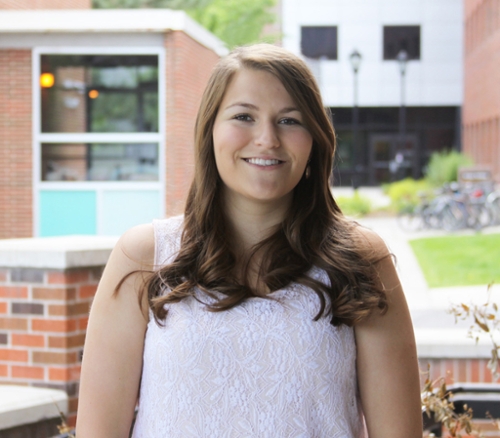 December 2015 - Shelby Cole, a first-year pharmacy student from Malta, recently was awarded an Undergraduate Diversity Student supplement by the National Institute of Environmental Health Sciences that will fund her own individual research project studying dendritic cells. Cole is Gros Ventre and Little Shell.
December 2015 - Shelby Cole, a first-year pharmacy student from Malta, recently was awarded an Undergraduate Diversity Student supplement by the National Institute of Environmental Health Sciences that will fund her own individual research project studying dendritic cells. Cole is Gros Ventre and Little Shell.
The funding comes as an administrative supplement to UM Professor David Shepherd’s five-year grant from the National Institutes of Health, through which his team studies dendritic cells – cells that play a pivotal role in immune system interactions. The team’s goal is to develop drugs that help control immune functions – whether limiting chronic inflammation, curing autoimmune diseases, combating an infectious disease, or blocking the detrimental effects of different environmental pollutants. View full article here.
UM Now Offers Bachelor’s Degree in Neuroscience

December 2015 – Students attending the University of Montana can now earn an undergraduate degree in neuroscience, the study of the nervous system and the brain.
The interdisciplinary major, approved by the Montana Board of Regents earlier this year, draws from courses in multiple University departments, mainly biomedical sciences, psychology, and biology. The major also requires courses in chemistry, math, and physics and offers elective courses ranging from kinesiology and health to behavioral economics, literature, and dance. UM will offer four new courses developed for the major including From Molecules to Mind: Fundamentals of Neuroscience and Central Nervous System Diseases. Full article here.
Concussion Research at UM Breaking New Ground

December 2015 - Potentially groundbreaking research is taking place in Montana to improve diagnosis and treatment of concussions. Two scientists are attempting to find critical information in human blood. This program gives an inside look at people who suffer a concussion, and those who are trying to help them. View full article here.
UM Professor Appointed to National Institutes of Health Study Section
 September 2015 - The National Institutes of Health recently selected a University of Montana professor to be a member of its Center for Scientific Review. David Shepherd, a faculty member in UM’s College of Health, accepted the four-year appointment to serve on the Innate Immunity and Inflammation Study Section.
September 2015 - The National Institutes of Health recently selected a University of Montana professor to be a member of its Center for Scientific Review. David Shepherd, a faculty member in UM’s College of Health, accepted the four-year appointment to serve on the Innate Immunity and Inflammation Study Section.
NIH chooses its members based on their demonstrated competence and achievement in their scientific discipline as evidenced by the quality of research accomplishments, publications in scientific journals and other significant scientific activities and honors. View full article here.
Researcher Earns $3.8M Grant to Investigate Chemical Exposure
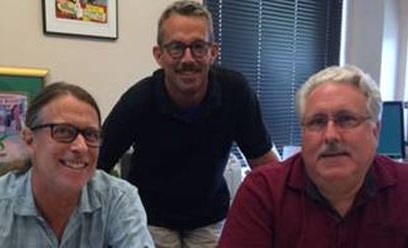 Sebtember 2015 - A new, five-year $3.8 million grant from the National Institute of Neurological Disorders and Stroke has been awarded to a research team led by University of Montana Professor Chuck Thompson.
Sebtember 2015 - A new, five-year $3.8 million grant from the National Institute of Neurological Disorders and Stroke has been awarded to a research team led by University of Montana Professor Chuck Thompson.
The grant will be used to support research that investigates new chemical and imaging technologies to understand how poisonous chemical agents known as organophosphates (OPs) enter the brain and how antidotes and therapeutics can be used to reduce neurotoxic effects to OP exposure. View full article here.
New UM Faculty Member Pleased to Call Missoula Home

Monica Serban is a new Montanan, having moved to Missoula with her family this summer.
Serban, a new faculty member at the University of Montana, was most recently in Boston. She's lived in Utah, Nebraska, North Carolina, and years ago, her native Romania.
She had an opportunity to take a job in Maine, but she chose Montana instead, and she's ready to make a home in the Big Sky and make a difference in the lives of students and others in her community. View full article here.
COH research team earns MREDI award
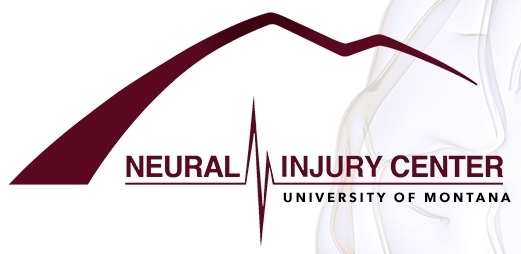
August 2015 - COH researchers were recently awarded a $2.2M grant to address traumatic brain injury from the MREDI program. An issue that affects a significant portion of Montana’s population, there are currently no available diagnostic tests to assess recovery & no proven treatments to reduce the cognitive and neurological damage from TBI. This project will bring together TBI researchers & private companies to create diagnostic tools for TBI survivors and expand clinical services for TBI survivors & veterans at UM’s Neural Injury Center by initiating clinical trials based on the technology developed by the research team. Full article here.
NFL, GE Award UM Brain Researchers $500,000
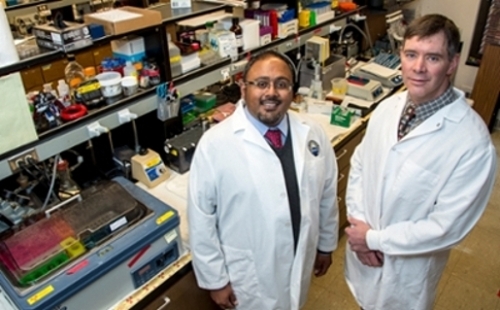
July 2015 - Two University of Montana researchers were among six final winners nationally to receive $500,000 from the Head Health Challenge I, an up-to-$10 million program sponsored by General Electric Co. and the National Football League. UM Research Assistant Professors Sarj Patel and Tom Rau, whose work aims to speed diagnosis and improve treatment for mild traumatic brain injury, received the news this week.
The goal of the Head Health Challenge is to improve the safety of athletes, members of the military and society overall. The winners were selected from an initial group of 16 challenge winners who were chosen from more than 400 entries from 27 countries, after having been reviewed and nominated by a panel of leading health care experts in brain research, imaging technologies and advocates for advances in brain research. View full article here.
High Schoolers Learn about Health Careers at Summer Camp
 June 2015 - While some Missoulians were still eating their breakfast on Monday, two dozen Montana high-school students taking part in a health career summer camp were wrist-deep dissecting the heart of a pig.
June 2015 - While some Missoulians were still eating their breakfast on Monday, two dozen Montana high-school students taking part in a health career summer camp were wrist-deep dissecting the heart of a pig.
The summer camp, called MedStart, is designed to give high-school juniors and seniors a chance to explore health careers and the various programs offered at colleges in Montana.
The MedStart camp in Missoula is sponsored by the Western Montana Area Health Education Center at the University of Montana, a not-for-profit funded by the federal Health Resources and Services Administration. View full article here.
UM Partners With Company to Create New Therapies

June 2015 - For Bridges and a research team at UM’s Center for Structural and Functional Neuroscience, it took almost two decades of experimentation to arrive at two related breakthroughs. They offer a potential treatment for brain tumors, which is an area in dire need of new therapies. It’s also great news because the now-patented research has led to an exclusive agreement with a drug company – and that kind of commercial development has resounding economic effects for the University and the Missoula community.
The discoveries in the group began with transporters – tiny proteins found on the surface of cells, which Bridges describes as turnstiles or revolving doors that move small molecules into and out of cells. Experimenting with those revolving doors has been a major focus for a number of groups in UM’s neuroscience center since its inception in 2002. View full article here.
UM Pre-Med Program Sees Steady Increase in Grads Accepted Into Medical School
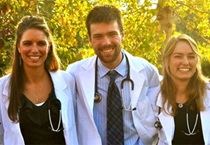
May 2015 - With 18 students accepted into medical schools this year, the Pre-Medical Sciences Program at the University of Montana reached an acceptance rate of 64 percent – 20 points higher than the national average of 44 percent.
The pre-med program has seen a steady increase in the number of students admitted into medical programs the past several years. In 2009, seven students received acceptance letters from at least one school. In 2010, just five. The number grew to 12 in 2011, and the program has had between 18 and 21 students admitted each year since then. View full article here.
BMED faculty partner with Project Lead the Way to bring Biomedical Sciences curriculum to MT high schools

May 2015 - The University of Montana has joined Project Lead The Way, the nation’s leading provider of science, technology, engineering and math programs for students in grades K-12. UM’s new role as a PLTW affiliate reinforces the University’s support for STEM education and its dedication to providing high-quality educational opportunities for Montana students and teachers.
PLTW offers programs with pathways in engineering, biomedical science and computer science. As an affiliate, UM will offer professional development training programs to PLTW teachers, host annual conferences for school administrators and counselors, and provide ongoing support to PLTW schools throughout the state of Montana. View full article here.
UM Researcher Brings Pharmacogenetics to Reservation
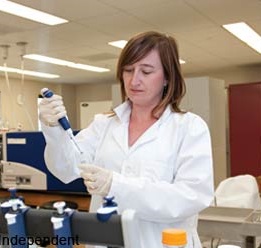
April 2015 - One of the biggest buzzwords in health care right now is pharmacogenetics, also known as personalized or precision medicine. During his latest State of the Union, President Barack Obama announced he was launching a $215 million Precision Medicine Initiative to bring us closer to curing diseases like cancer and diabetes, and to give Americans access to the personalized information needed to keep healthier. Last week, the governor of California unveiled a similar $3 million public-private statewide initiative.
As interest and investment in personalized medicine increases, University of Montana Associate Professor Erica Woodahl stands in a prominent position. She's currently the only person in the continental United States doing pharmacogenetic research on an indigenous population. View full article here.
Graduate Level Research at UM's Center for Environmental Health Sciences
 March 2015 - Learn about Toxicology Graduate Students at the Center for Environmental Health Sciences performing state-of-the-art research at the University of Montana. For more information, please visit cehsweb.health.umt.edu View full article here.
March 2015 - Learn about Toxicology Graduate Students at the Center for Environmental Health Sciences performing state-of-the-art research at the University of Montana. For more information, please visit cehsweb.health.umt.edu View full article here.
BMED faculty host student Brain Bee event

March 2015 - Kit Fieldhouse, the winner of University of Montana’s first Brain Bee competition, will travel to Baltimore on Friday and Saturday to compete in the U.S. National Brain Bee.
On Feb. 21, Fieldhouse won UM’s Brain Bee, an initiative of the spectrUM Discovery Area and the UM Center for Structural and Functional Neuroscience. The Hellgate High School junior competed against 17 other high school students from Missoula, Lolo and Florence in a written and laboratory exam, with the finalists advancing to the live Brain Bee. View full article here.
Crusade Against Cancer: Scientists Search Berkeley Pit for Answers
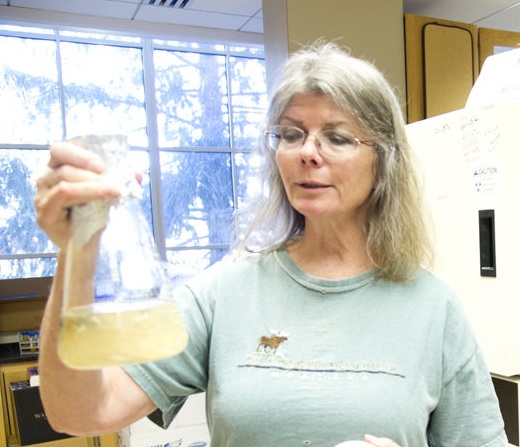
February 2015 - Professors researching at the University of Montana have turned to Butte's Berkeley Pit fungi as a potential building block in the cure for cancer.
In their lab, Andrea Stierle tracks data on her computer while her husband, Don Stierle, writes the couple’s findings in a lab notebook. They are surrounded by chemical hoods, scattered petri dishes and graduated cylinders.
The Stierles started working at UM in 2010, and brought their research about fungi that live in the Berkeley Pit. Bacteria there have adapted to survive in its harsh waters, and the Stierles' research focuses on fungi that could block the pathways cancer uses to travel through the body. View full article here.
Researchers Advance Novel Therapy for Immune System-Related Diseases
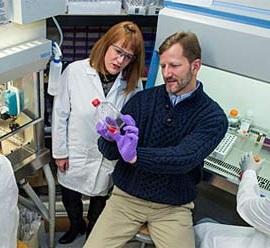
February 2015 - When the body turns against itself, it can strike with debilitating and deadly accuracy. The war raging inside people with autoimmune disorders can be devastating, and the current gold standard of care involves complete demilitarization of the body’s defenses by highly immunosuppressive drugs. Because one part of the immune system can’t be trusted, the whole thing is brought down, leaving the body highly susceptible to increased and more severe infections, as well as unchecked growth of cancerous cells. But now UM researchers are developing a more targeted response. View full article here.
Study: Air Pollution Affects Short-Term Memory, IQ, Brain Metabolic Ratios

February 2015 - City smog lowers children’s IQ. This is among findings from a recent University of Montana study that found children living in cities with significant air pollution are at an increased risk for detrimental impacts to the brain, including short-term memory loss and lower IQ.
Findings by UM Professor Dr. Lilian Calderón-Garcidueñas, MA, MD, Ph.D., and her team of researchers reveal that children with lifetime exposures to concentrations of air pollutants above the current U.S. standards, including fine particulate matter, are at an increased risk for brain inflammation and neurodegenerative changes, including Alzheimer’s and Parkinson’s diseases. View full article here.
2014
- Toxicology and Biomedical Sciences graduate students excels on and off campus (December 2014)
- BMED faculty express concern over reductions in federal research funding (October 2014)
- BMED faculty research targets reducing respiratory problems in at-risk elderly populations (August 2014)
- Undergraduate students contribute to laboratory research (July 2014)
- Graduate student investigates the health effects of particulate matter (June 2014)
- BMED faculty researcher starts new biotech spin-off (April 2014)
- BMED faculty help lead UM's new Brain Initiative (April 2014)
- Founding Chair of BMED Retires (February 6th, 2014)
- BMED researchers are among 16 national recipients of NFL & GE Head Health Challenge Awards to Study Traumatic Brain Injury (January 23, 2014)
- Toxicology graduate student receives PHRMA Fellowship (January 2014)
2013
- BMED faculty contribute to the opening of the new SpectrUM science museum (October 11th, 2013)
- BMED faculty lead efforts to link biomedical research with economic development (August 16th, 2013)
- BMED faculty contribute to economic development efforts (August 12th, 2013)
- BMED Researcher's Work on Air Pollution and Brain Injury Highlighted in Research View (July 26th, 2013)
- BMED Faculty Highlighted by National Pharmacogenomics Research Network (July 16th, 2013)
- Montana's first NIH COBRE Phase III grant awarded to BMED's Center for Environmental Health Sciences (July 12th, 2013)
- BMED Graduate Students Receive Fellowships to Conduct Research in France (May 21st, 2013)
-
BMED researcher advances novel therapy for Traumatic Brain Injury (May 12, 2013)
- UM Pharmacogenetics Research Team Establishes Trust First (May 9th, 2013)
- BMED Faculty interview on NPR Highlights New Health Risk from Air Pollution (March 5th, 2013)
- BMED Faculty and the Confederated Salish and Kootenai Tribes Word to Advance Pharmacogenetic Research (Feb. 28th, 2013)
2012
- BMED professor opens "Bringing the U to You" lecture series in Great Falls. (January 31st, 2013)
- Missoula forum on smoke and air quality features BMED faculty (January 11th, 2013)
- BMED Professor Appointed 2013 AAAS Fellow (December 11th, 2012)
- BMED Research Highlighted in New Montana Public Radio Show
- BMED Faculty Research Highlighted in Campus Outreach (November 2nd, 2012)
- Center Receives $1.25 Million Grant To Fund Regional Environmental Health Education Program (October 5th, 2012)
- Use of Low-Dose Methamphetamine as a Neuroprotective Agent following Traumatic Brain Injury (September 2012)
- Medical research saves lives, creates jobs in Montana (June 18th, 2012)
- BMED faculty participate in a "Celebration of Research" at Salish Kootenai College (June 7th, 2012)
- A Scientific Marriage - Dynamic duo brings life-saving, forest-preserving research project to UM (Summer 2012)
- National Institute Director To Speak At UM (April 30th, 2012)
- UM Pharmacy Student Wins National Competition (April 24th, 2012)
- Lecture at UM will examine health care for American Indian elders (April 7th, 2012)
- UM children’s science center looks to expand into Missoula Mercantile Building (March 25th, 2012)
- UM Pharmacy Program Accredited For Maximum Period (February 14th, 2012)
2011
- UM biomedical and pharmaceutical sciences chair named Regents professor (November 19th, 2011)
- Big Sky Brain Project Receives $1.3 Million Grant (October 4th, 2011)
- UM Receives $9.9 Million National Institutes Of Health Grant (September 13th, 2011)
- Symposium At UM Showcases High School Student Research (May 9th, 2011)
- Invest in Montana research, continue to reap long-term benefits (April 21, 2011)
- Researchers Examine Indoor Air Pollution, Respiratory Health Issues Among Alaska Natives (January 11th, 2010)
- Lecture Series Set To Explore Science, Evolution Of Learning (January 4th, 2011)
- BMED Investigators among UM's top grant recipients (UM Vision 2011)
2010 - '09
- From Mice to Men - Damage-reducing stroke drug moving to human trials (Winter 2010)
- UM Technology Launches Brain Imaging Company (November 30th, 2010)
- SpectrUM, Community Medical Team Up To Create 'Brain Bus' (November 22nd, 2010)
- $1.5 Million DOD Grant Studies Drug To Limit Brain Injuries (September 27th, 2010)
- SpectrUM Discovery Area Unveils Latest Exhibition: The Brain, World Inside your Head (September 10th, 2010)
- NIH Grant Brings Researchers Together To Improve Access To Drug Therapy (September 9th, 2010)
- Researcher Delves Into Mysteries Of Alzheimer's Disease (July 14th, 2010)
- Individualized Medicine - UM research aims to improve tribal health (Summer 2010)
- Students Work To Bring Safe, Clean Water To Haiti's Children (March 17th, 2010)
- UM Pharmacy School Retains Top-10 Research Ranking (February 26th, 2010)
- Damage-Reducing Stroke Drug Moving To Human Trials (January 29th, 2010)
- Drug may limit brain injury damage (UM Vision 2010)
- Tainted Trees - Research reveals another public health threat from asbestos (UM Vision 2009)
